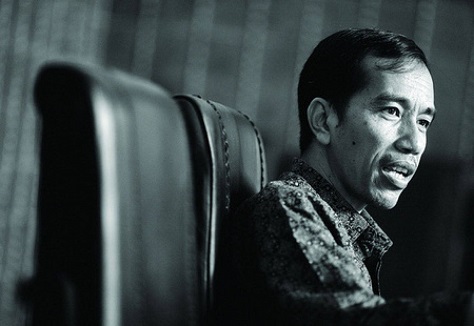Guest post by Andrew J. Novak
Indonesian president Joko Widodo (known popularly as ‘Jokowi’) was perceived as a promising agent for change when he was elected to office last July, but he has triggered recent diplomatic criticism for his unrepentant views on the death penalty, especially for drug trafficking, in ways that are drawing attention to the use of the death penalty in southeast Asia and beyond. ![]()
Jokowi claims that drug use takes the lives of 50 Indonesians per day and he promises no mercy in combating traffickers. Though drug trafficking is an often intricately premeditated crime, the death penalty for drug offenses appears to have little deterrence value, as it primarily ensnares drug mules –often poor migrant workers — rather than drug lords. In addition, the death penalty for drug trafficking falls heavily on foreign nationals, especially in southeast Asia where countries are increasingly interlinked, and their own nationals are on their neighbors’ death rows. Accordingly, diplomatic pressure to prevent the executions of a country’s citizens by foreign governments places increasing strain on the death penalty throughout the region. The Malaysian government’s opposition to the planned execution of its national Yong Vui Kong in Singapore, for instance, ultimately helped spur a major reform of Singapore’s death penalty laws in 2012 and led to Yong’s removal from death row. As a result of that opposition movement, Malaysia sent promising signs that it was internally reviewing its own mandatory death penalty laws, including for drug trafficking.
Jokowi’s government is now trapped in this diplomatic web. In January 2015, after a four-year moratorium, Indonesia carried out six executions, five of them of foreign nationals. In response to the execution of a Dutch national, the Netherlands, Indonesia’s former colonial power, withdrew its ambassador. Brazil followed suit after Jokowi rejected Brazilian president Dilma Rousseff’s personal appeal for clemency on behalf of a Brazilian national. The row with Brazil, in particular, has deepened: this past week, Rousseff indefinitely postponed accepting the credentials of the Indonesian ambassador-designate to Brazil, a snub that elicited strong protest from Jakarta. On February 22, Indonesia recalled its ambassador to Brazil. Rousseff is also pleading for another Brazilian national — one with a documented mental illness — who is facing imminent execution in Indonesia. In Vietnam, where recent wrongful convictions and grants of clemency have spurred reflection on its own death penalty regime, the foreign ministry publicly (and unsurprisingly) opposed Indonesia’s execution of a Vietnamese national. News reports also indicate that the Nigerian foreign minister summoned the Indonesian ambassador to protest the execution of a Nigerian national, and pressure is mounting to withdraw the Nigerian ambassador from Jakarta. Continue reading Death penalty diplomacy presents challenge to Jokowi
